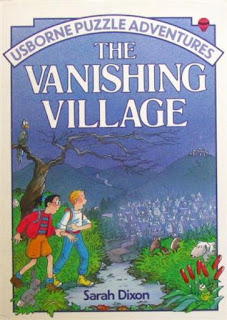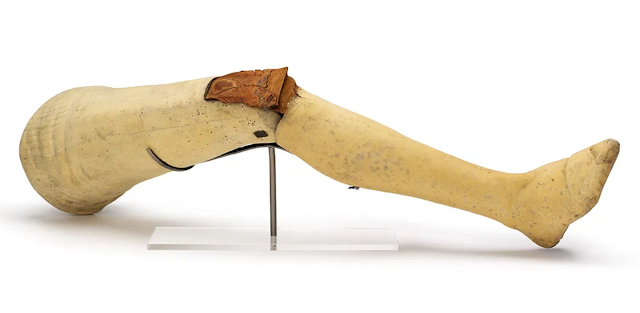PERSONAL: So, why did you choose Medieval Studies? Part 1: Choosing Your Own Adventure
Recently someone asked me the question 'So, what made you choose Medieval Studies?'. After a few moments thought I said non-noncommittally that there were a lot of reasons. It got me thinking about the things which inspired me to make that choice, and what continues to inspire me in my research. It led to a few surprising reflections. And while it didn't start there one of the first physical objects that led me to this field of research was a rather battered book from a very underfunded school library.
My memories of what might be called my childhood are vague
at best – but there are a few things which stand out and some of them are key
to how I came to settle in Medieval Studies.
I was about 7 years old when I got my first Usborne Puzzle Adventures
book from the library. I can’t remember
which one, but I remember sitting and working out each puzzle, and then running
over it again and again. A particular favourite
was The Vanishing Village.
The books were fantastical and followed similar plot lines
to the other stories I liked to read – but it was the added element of problem
solving which stuck with me. I loved
piecing together keys and codes, especially if it required putting together an
inscription of some kind. I knew vaguely
what archaeology was, I knew it was something my Dad had done some work in, but
I didn’t really connect the two until much later. I remember a few years later I started trying
to design my own puzzle adventures. It was
this that led to me creating what would be the first of many ‘alphabets’. I knew absolutely nothing of linguistics, so
most of the early ones mapped to English, and later to German. This sparked an interest in runic alphabets
and a conversation with my Dad where he talked about Ogham. I was fascinated. As far as teaching medieval studies goes the
lesson I personally draw from this part of my own history is that for some
students it can be a better path to show interesting problems, rather than
simply providing answers.
A few years later I started playing through Fighting Fantasy
Gamebooks – finding myself mostly drawn to those set in worlds based loosely on
the middle ages. The first was Trial of Champions, and the second Forest of Doom. I was writing my own stories – and through
this I came to the idea that I needed to know more of the worlds I was creating
and so I needed to know more about the world I was basing them on. This led me, though I didn’t know it, to my first
encounter with the concept of ‘research’.
I began to read everything I could find on the Middle Ages which would
at times lead me into conflicts that I wasn’t expecting (more on that in a
later entry).
They weren’t the first step on my road to studying and
researching Medieval Studies – but they were a key step that would lead me eventually
to where I stand now, as a PhD student working on the Middle Ages. Much to my delight I recently discovered that
the Usborne Puzzle Adventures are still relatively easy to get hold of. The Fighting Fantasy Gamebooks are still in
print in a number of editions. The first
part of a history of those gamebooks, titled You are the Hero, was written by J.
Green and published in 2014, and a second in 2017. Sadly, the second part is very hard to track
down.
The take home message from this reflection is relatively
simple – teaching doesn’t have to be about knowing the answers. Sometimes it’s about introducing students to
the puzzles, problems and challenges of research.





